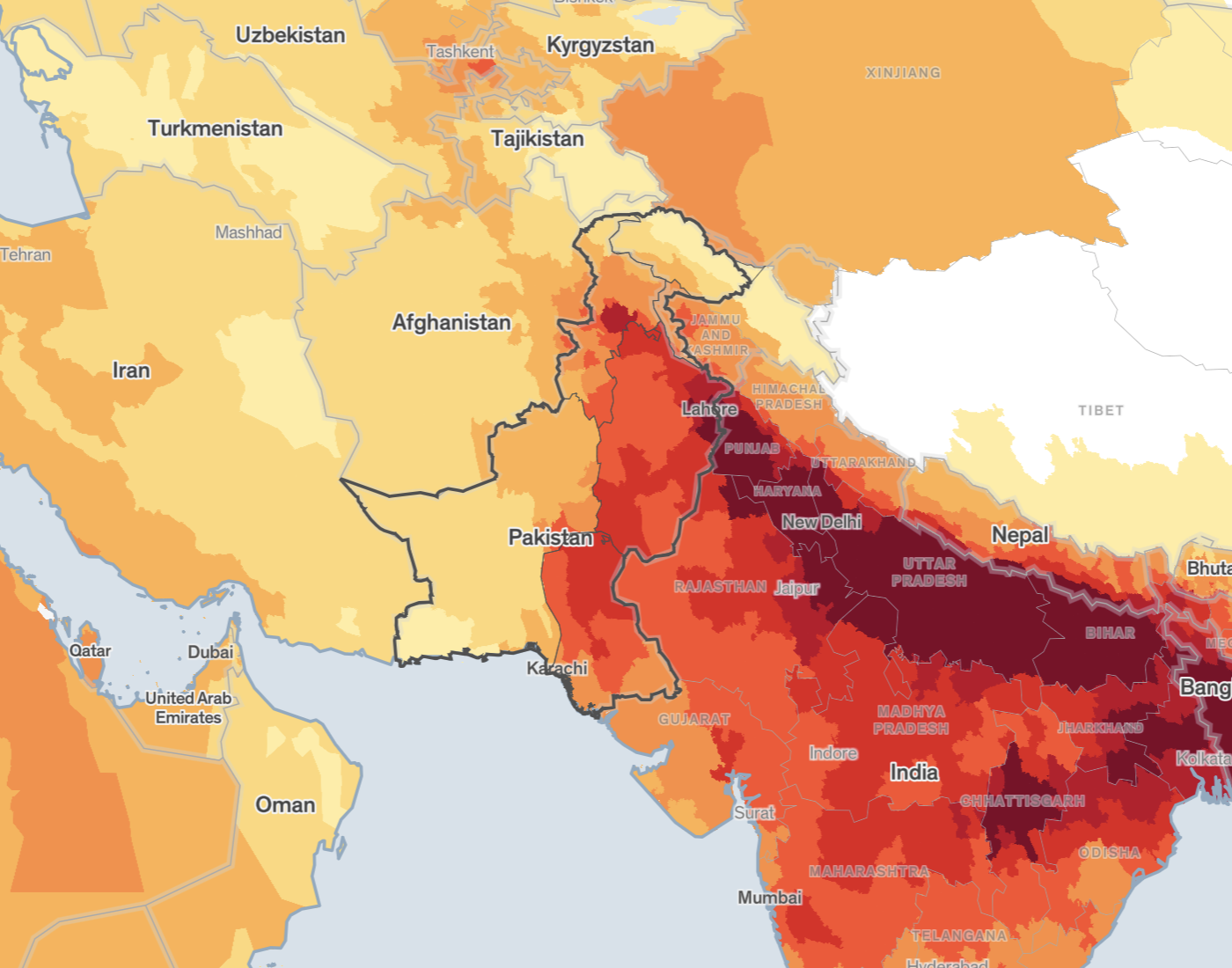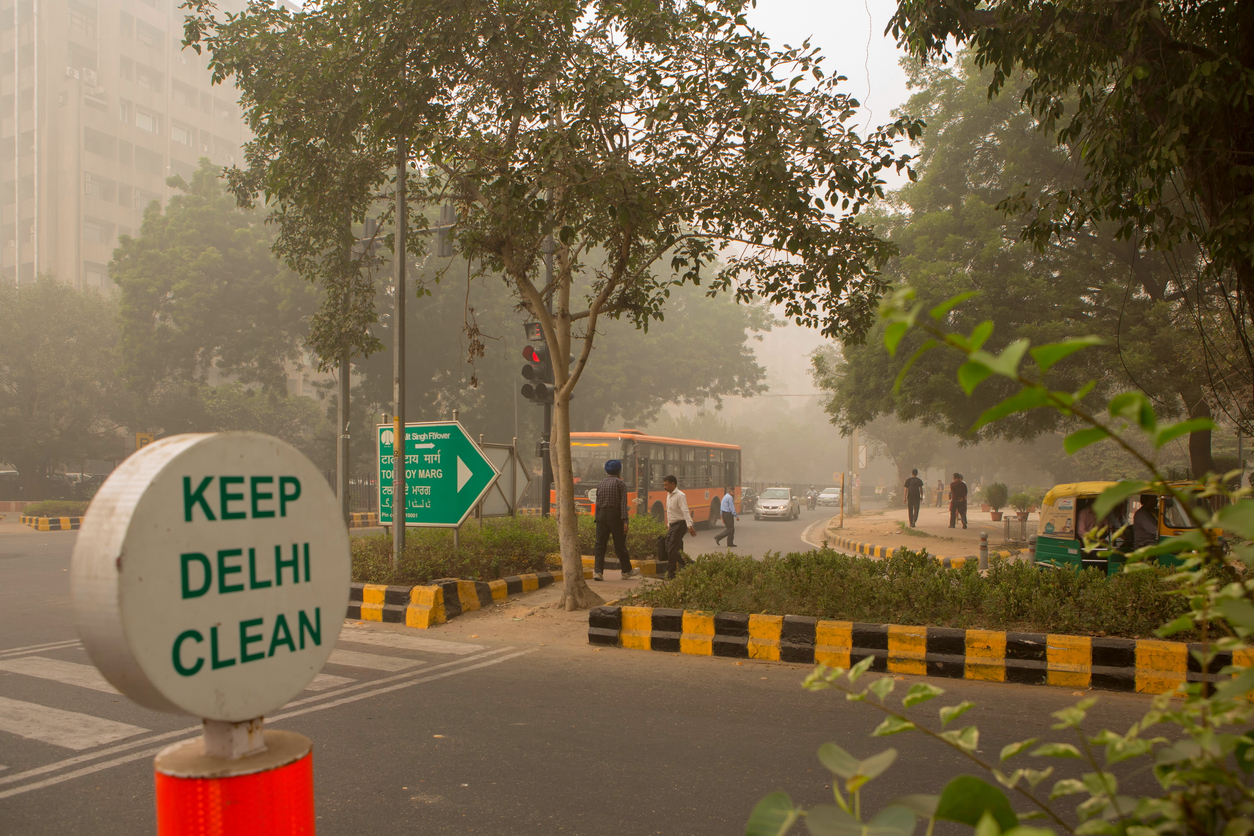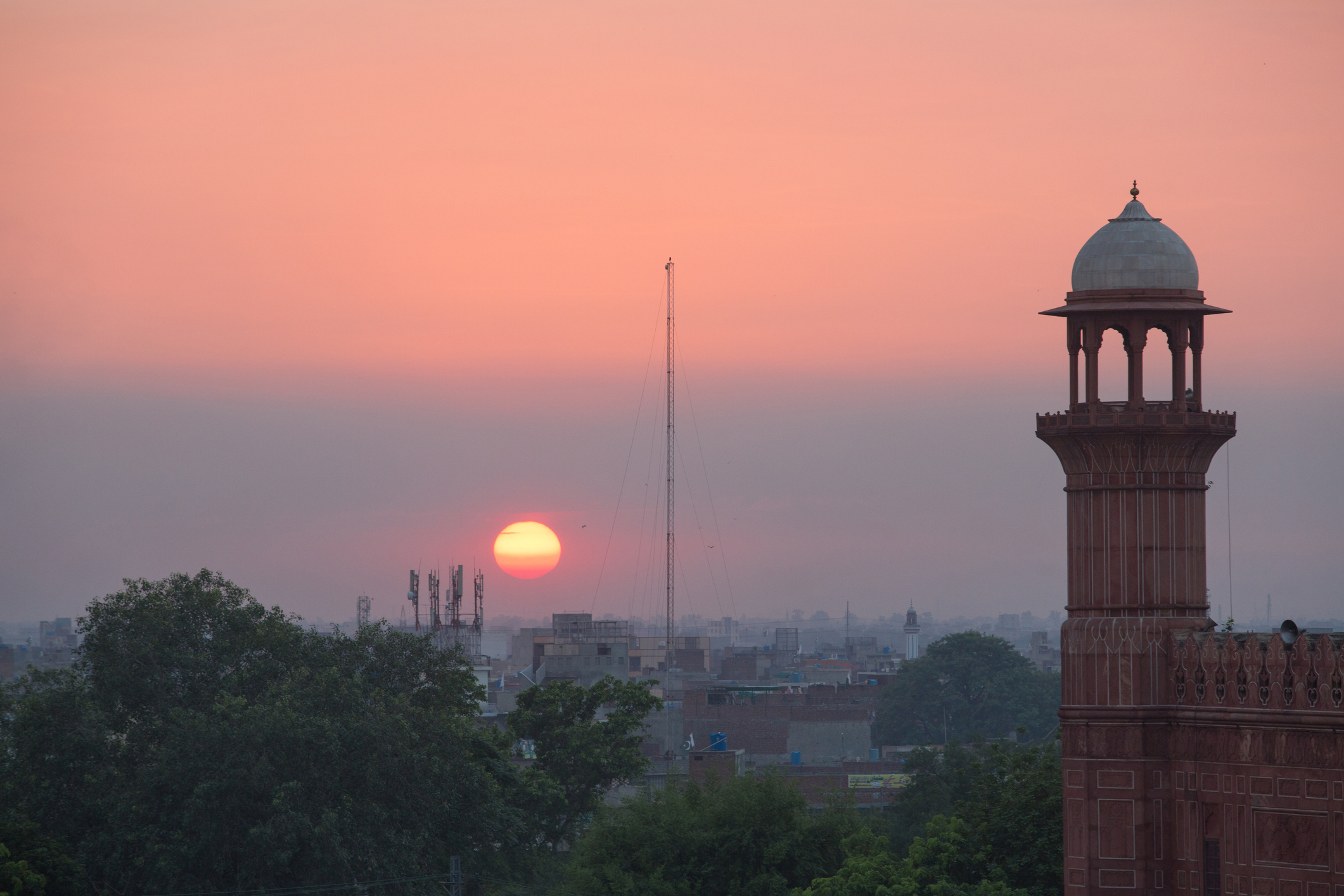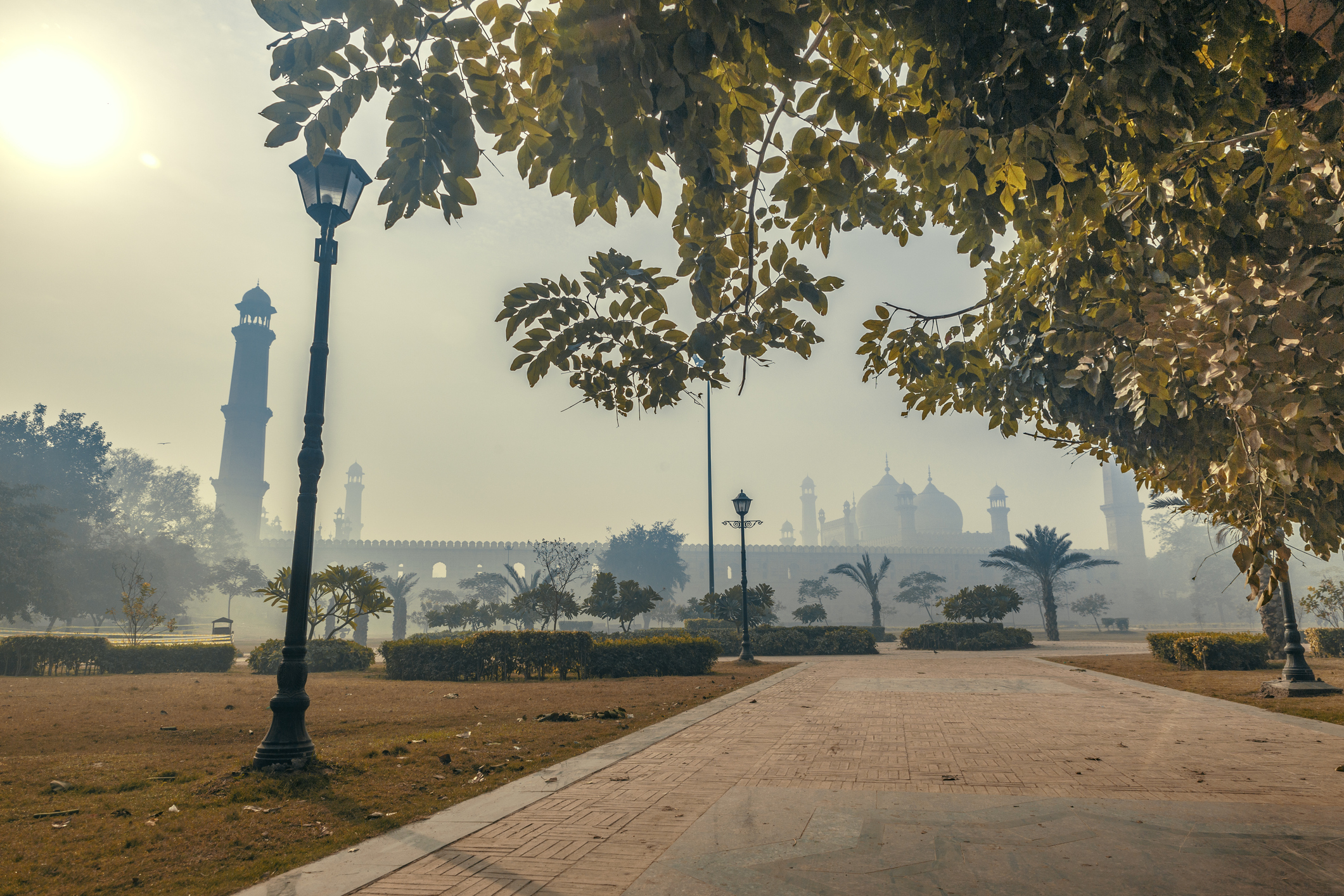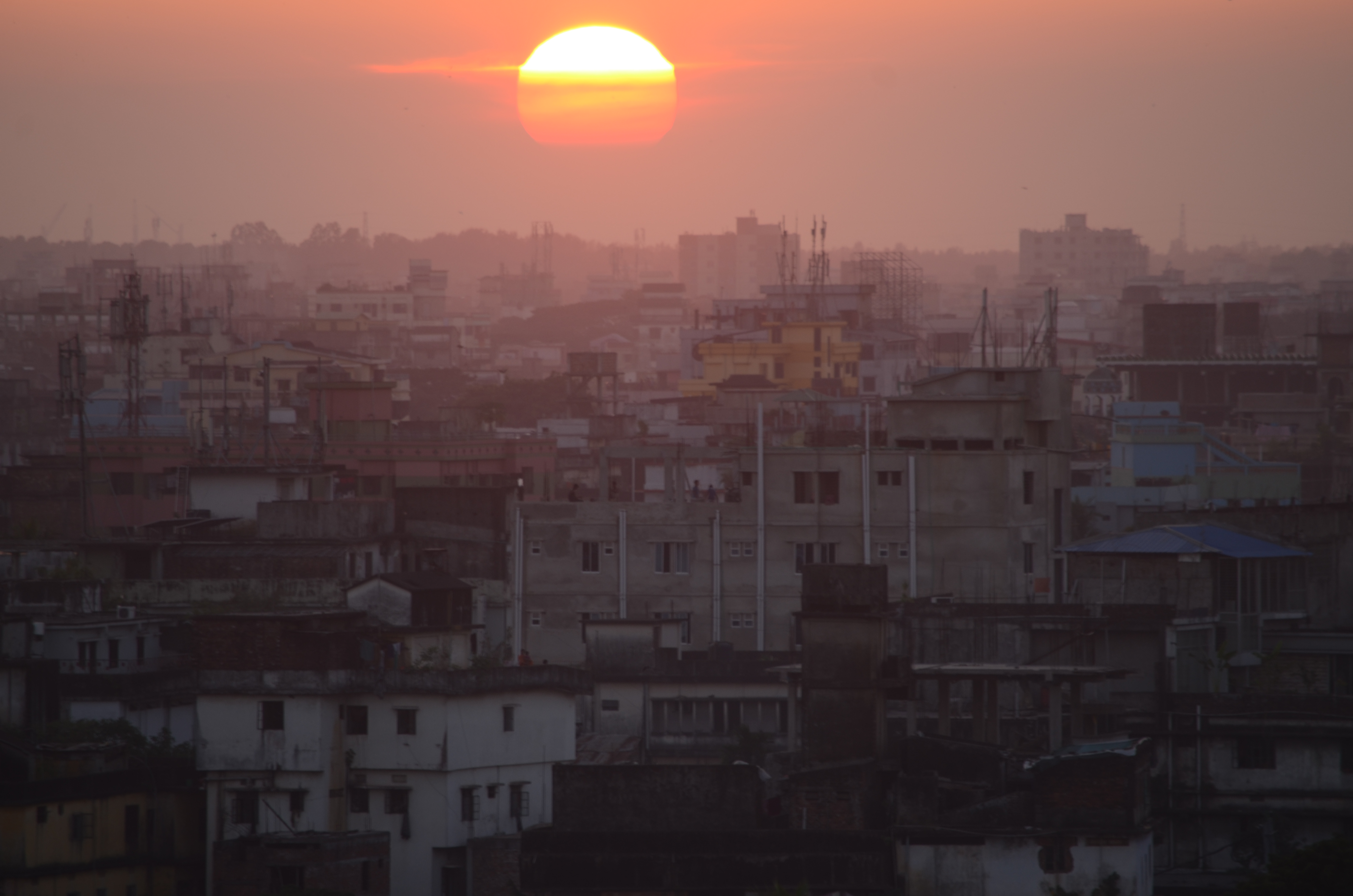Last Updated: August 28, 2023
Pakistan is the world’s fourth most polluted country. Fine particulate air pollution (PM2.5) shortens the average Pakistani resident’s life expectancy by 3.9 years, relative to what it would be if the World Health Organization (WHO) guideline of 5 µg/m3 was met. Some areas of Pakistan fare much worse than average, with air pollution shortening lives by almost 7 years in the country’s most polluted regions like Lahore, Sheikhupura, Kasur and Peshawar.
KEY TAKE-AWAYS
- All of Pakistan’s 238 million people live in areas where the annual average particulate pollution level exceeds the WHO guideline; 98.3 percent of the population live in areas that exceed the country’s own national air quality standard of 15 µg/m3.
- Measured in terms of life expectancy, particulate pollution is the second greatest threat to human health in Pakistan (behind cardiovascular diseases), taking 3.9 years off the life of the average Pakistani. In contrast, child and maternal malnutrition, and maternal and neonatal disorders reduce average life expectancy by 2.7 years.
- Particulate pollution has increased over time. From 1998 to 2021, average annual particulate pollution increased by 49.9 percent, further reducing life expectancy by 1.5 years.
- In the most polluted provinces of the country—Punjab, Islamabad Capital Territory and Khyber Pakhtunkhwa—165.5 million residents or 69.5 percent of Pakistan’s population are on track to lose between 3.7 to 4.6 years of life expectancy on average relative to the WHO guideline and between 2.7 to 3.6 years relative to the national standard if the current pollution levels persist.
Footnotes
[1] This data is based on the AQLI 2021 dataset. All annual average PM2.5 values (measured in micrograms per cubic meter: µg/m³) are population weighted.
[2] We define Karachi as the following six regions: Central Karachi, East Karachi, Korangi Karachi, Malir Karachi, South Karachi and West Karachi.









